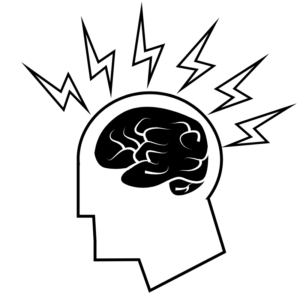Everyone knows what it is to be tired, but not everyone knows what chronic fatigue is like. Even those who feel consistently tired might not be experiencing chronic fatigue syndrome (more on that later). Most people suffer from sleep disorders at least temporarily, and some people have long-term issues with sleeping. Fortunately, there are many, many things you can do to improve your sleep and decrease your fatigue.
In this piece, we’ll dispense some practical advice, get into supplements that can improve your energy levels and decrease fatigue, and help you live a more fulfilling, rested life. We’ve consulted academic studies near and far, along with a host of other authorities on sleep, including its economic impacts, and the reach of fatigue and sleep disorders among the public.
Let’s check out 20 facts about fatigue, organized by surprising facts, medical treatments, lifestyle changes, and figuring out what’s causing your fatigue.
First let’s look at some of the most common causes of fatigue:
What’s Causing Your Fatigue?
- 1) Allergies: If your fatigue is paired with nasal congestion, itchiness, and headaches, you might have allergic rhinitis, according to WebMD. Also known as hay fever, this condition occurs in reaction to dust, insects, pollen, animal shedding, mildew, molds, changing weather, or another cause. Doctors can help you learn what’s causing your allergies so you can avoid it, and prescribe you drugs or immunotherapy to mitigate or eliminate it.
- 2) Anemia: Anemia is a lack of red blood cells or hemoglobin that can result from several causes like pregnancy, your diet, or even cancer. It leads to a lack of oxygen reaching the tissues throughout the body. Mild Anemia is often misdiagnosed or not diagnosed at all. If you often find yourself dizzy, short of breath, the victim of frequent headaches and constantly tired, you may have Anemia. Especially if you notice you’re craving to chew on ice constantly, get a blood test. According to the National Center for Biotechnology Information, 25% of the world has anemia.
- 3) Insomnia, Anxiety, and Depression: If you’ve dealt with anxiety, depression, and insomnia, you probably have a sense that the three are connected. According to the National Sleep Foundation those who suffer from insomnia are ten times more likely to have clinical depression, and 17 as likely to have clinical anxiety.
- 4) Sleep Apnea: Are you snoring a lot? Are you getting up in the middle of the night constantly? Does your partner or family members comment on your snoring? Are you constantly tired? You might have sleep apnea, and your life can be dramatically improved by treating it. At least 24% of men and 9% of women are affected by sleep apnea. Talk to a doctor if you think you might be part of this cohort to schedule a sleep test and see what options are available to you.
- 5) Underactive Thyroid (Hypothyroidism): The thyroid is a tiny, butterfly-shaped gland in your neck. It helps regulate your metabolism and is also tied to sensitivity to cold, dry skin, and chronic fatigue. The American Thyroid Association says the most common causes are autoimmune diseases like Hashimoto’s thyroiditis, radiation treatment, and the removal of the thyroid.
- 6) Caffeine, Alcohol, Smoking, and Poor Diet: Your fatigue might not have the most mysterious origins. Take a hard look at your consumption of these substances, and how much you’re choosing to eat foods high in sugar, fat, and salt. All of this can lead to frequent tiredness, but it’s in your control to make changes that can pay dividends throughout your life. You’ll be much healthier and have more energy, along with many other positive side effects.
So what can you do about fatigue other than taking better care of your consumption?
Lifestyle Changes That Prevent Fatigue
- 7) Exercise: If you’re dealing with constant fatigue, look at your exercise patterns. A University of Georgia study found that doing regular, low-intensity exercise can bring energy levels up 20% and reduce fatigue by 65%. The impact of exercise on fatigue has been seen in people with heart disease and cancer, as well. A Psychological Bulletin study that looked at dozens of other studies found that regular exercise was better than stimulant medications for decreasing fatigue.
- 8) Dietary Changes: There are many changes you can make to your diet to reduce fatigue and boost energy. Research published on the National Center for Biotechnology Information noted that bananas are just as powerful as carbohydrate sports drinks in giving boosts of energy. Other fruits, vegetables, lean proteins, nuts, seeds, and plenty of water have all been associated with higher energy levels when regularly consumed.
- 9) Ashwagandha: Ashwagandha is an ancient cure for fatigue. This medicinal herb traces its roots to Indian Ayurveda, one of the planet’s oldest medical systems. The herb decreases stress and promotes physical resilience. A study showed it increased stamina in swimming rats and decreased their stress as they swam. As a bonus, it has been shown to help people with poor memory, whether they were children or people with neurodegenerative diseases. Perhaps best of all, Ashwagandha has been shown to be safe and carry very low risks of side effects.
- 10) Rhodiola Rosea: This herb grows in cold, mountainous regions. Like Ashwagandha, it has been shown to decrease fatigue by decreasing stress. It also has very low risks for side effects, and has been shown to combat depression. It was compared to antidepressant sertraline, sold as Zoloft. While it didn’t reduce symptoms of depression as much as sertraline, it was found to reduce symptoms, be more tolerable, and create fewer side effects.
- 11) Melatonin: The better your rest, the less fatigued you’ll be. If you’ve ever struggled with falling and staying asleep, you know the pain of getting stuck in a poor sleep cycle. The body naturally produces the hormone melatonin, but if you’re struggling to get to sleep, you might need a bit more. Along with helping you get deeper, more restful sleep, lower natural melatonin levels have been linked to aging, Alzheimer’s, type 2 diabetes, high blood pressure, and cancer. Melatonin supplements are safe. They also don’t make you produce less melatonin, and aren’t connected to withdrawal or dependence.
- 12) Caffeine with L-Theanine: While too much caffeine can be bad for your fatigue, pairing it with L-theanine is a great way to maintain higher energy levels. L-theanine is an amino acid that’s naturally occuring in tea and some mushrooms. It’s believed to help people relax without making them drowsy. The combination of L-theanine and caffeine have been linked to improved memory, reaction time, and less tiredness and mental fatigue.
- 13) Changing Your Relationship with Screens: There are strong links between visual fatigue and the amount of time we spend looking at screens. To get better sleep, stop looking at screens at least an hour or two before you go to bed. Help yourself from using screens in the middle of the night by placing them far from your bed. As a bonus, if your phone wakes you up in the morning, you’re far more likely to get up to turn off your alarm than hit the snooze button and sleep in.
Here’s some information about fatigue you might not already know:
Surprising Facts about Fatigue
- 14) Sleep Disorders: According to the National Safety Council, over 70 million Americans have a sleep disorder. If you’re suffering from fatigue, talk to your doctor. There are so many things you can do to mitigate it, and ignoring it won’t solve anything.
- 15) Driving Tired: Do not get behind the wheel when you’re fatigued! There were 5,000 people who died in car accidents related to drowsiness in 2014. Being awake for over 20 hours has the same impact on you as being legally drunk, and losing just a couple hours of sleep is like having three beers. Fatigued people are three times more likely to get into a car crash than those who are rested.
- 16) The Cost of Fatigue: Employers lose at least $136 billion annually due to lost productivity from fatigue. It can boil down to between $1,200 to $3,100 per employee each year.
- 17) Insomnia: Shockingly, around 30% of adults in the world suffer from insomnia.
- 18) Fatigue at Work: A 2018 survey by the National Safety Council found that over 69% of American workers reported fatigue at work. That’s about 107 million of the approximate 160 million workers in the country. Fatigue was defined as “feelings of tiredness, sleepiness, reduced energy, and increased effort needed to perform tasks at a desired level.”
- 19) Sleep Washes the Brain: Neuroscientist Maiken Nedergaard has documented the biological value of sleep. Studies she’s coauthored demonstrate how fluid washes our brains and cleans toxins like beta-amyloid from our minds while we sleep. Beta-amyloid is linked to neurodegenerative diseases like Alzheimer’s.
- 20) Chronic Fatigue Syndrome Biomarker: Researchers at the Stanford University School of Medicine have created a blood test that can identify people suffering with Chronic Fatigue Syndrome. CFS has long been a mystery to scientists, and many patients have been accused of making up the problem. But this new Stanford test was able to accurately find patients who had CFS out of 40 patients, 20 of whom had it, and 20 who didn’t. Being able to identify people living with CFS is the first step to treating it.
If you’re having a problem sleeping, see a doctor AND follow some of the general advice we’ve cataloged here. Good night!

